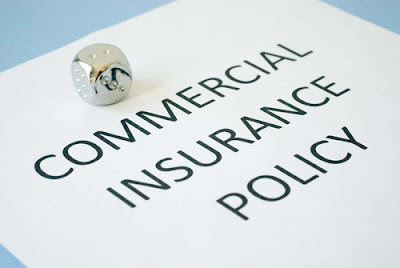What is commercial insurance? Commercial general liability insurance is an extensive form of insurance coverage that offers liability protection for various business hazards. It covers risks that are likely to arise in the course of your business operations, and is one of the most significant types of insurance coverage available. When you are shopping for this particular type of coverage, there are several questions that you need to ask and consider before buying a policy.
Who are the businesses that are covered by this type of insurance? This insurance applies to owners and managers of companies, partnerships, as well as professional and occupational associations. The insurance also covers contractors, subcontractors, brokers, salespeople, stockholders, and others who are involved with the performance of work. What are the typical liabilities covered by this type of policy? This insurance policy typically covers personal liability claims made against an individual employee, member of the company, or the owner of a company that is the subject of a policy.
What are the legal requirements for carrying commercial general liability insurance? In order to be adequately covered by the policy, you must meet all of the requirements. The first requirement is that you must operate a business that carries or receives a cash-flow. This means that your business must produce cash to pay your policy premiums. In addition, it is necessary to have a legal system in place, one that is recognized throughout the country, in order to properly settle disputes and protect your legal rights.
What are some of the common exclusions included in commercial insurance? There are exclusions that apply to different kinds of liabilities, including negligence liability, property damage liability, and advertising liability. For instance, there are exclusions that prevent insurers from paying claims for errors and omissions, and for mistakes or omitted elements of a construction project. In addition, small business owners can usually purchase additional coverage called "third-party liability" to protect against property damage or bodily injury claims.
What are some of the typical costs associated with commercial liability coverage? The cost of your property damage or bodily injury claim will depend on a variety of factors. First, the extent of the damage, including the amount of actual loss and the cost of replacement. Additionally, you will have to consider any special circumstances, such as weathering or vandalism, which could result in increased liability.
What are some of the different types of commercial insurance? In addition to property damage and bodily injury claims, there are also a variety of different types of coverage. For instance, there is liability coverage that protects business owners for slander, malicious prosecution, and libel. Business owners can also obtain coverage for professional indemnity. This provides protection in the event that you are sued for exercising your right of self employment.
Are there any limits to what is commercial liability policies can provide? In most instances, the limits provided are meant to help protect your company. If an employee is injured while working on your property, for example, that employee may sue your company for medical and property damage compensation. Without insurance coverage, you could be responsible for those damages, which could drain your company's capital and even put your own livelihood at risk. However, there are times when the liability coverage in a commercial liability policy may not be enough to properly handle an accident or claim. As a result, you should consult with a qualified insurance agent to determine what, if any, additional insurance coverage is necessary to adequately protect your company.
What is commercial insurance coverage? As long as you follow the rules and regulations outlined by the different state insurance commissions, you should be able to legally obtain the types of coverage described above. The responsibility lies with you, however, to make sure you have the coverage you need and that you are properly maintaining it. To find the best coverage for your business, you may want to consult with an experienced compensation insurance agent.
